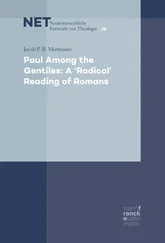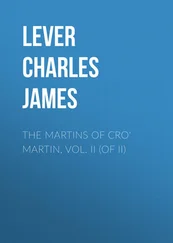Конец ознакомительного фрагмента.
Текст предоставлен ООО «ЛитРес».
Прочитайте эту книгу целиком, купив полную легальную версию на ЛитРес.
Безопасно оплатить книгу можно банковской картой Visa, MasterCard, Maestro, со счета мобильного телефона, с платежного терминала, в салоне МТС или Связной, через PayPal, WebMoney, Яндекс.Деньги, QIWI Кошелек, бонусными картами или другим удобным Вам способом.
Acts xx. 23.
Hort's Prolegomena to Romans and Ephesians (Macmillan, 1895), p. 9.
Sanday and Headlam's Commentary (T. & T. Clark, 1895), p. xxviii. This commentary is henceforth referred to as S. & H.
See Rom. ii. 17; iii. 9, &c.
See Rom. i. 13; xi. 13-32; xv. 14-21.
Rom. xvi. 3.
See Rom. vi. 17, and remarks p. 234; cf. S. & H., p. xli.
Acts xv. 1-35.
Gal. ii. 1-10.
Rom. xv. 25-32.
Hort, l.c., p. 44.
Rom. i. 10, 11; xv. 22-24.
1 Macc. ii. 42; vii. 13 ff.
John v. 44.
Matt. xv. 6; xxiii. 23.
Rom. x. 3.
Acts xv. 10.
Rom. vii. 7.
See the argument of Gal. iii. 15-22. 'God is one' in a sense which excludes the idea of any relatively independent contracting party over against Him.
Acts xxvi. 14.
Col. ii. 20-22.
2 Tim. i. 12.
Rom. x. 5-8.
Cf. iii. 22, 26, &c.
2 Cor. v. 19; Rom. iv. 25.
1 Pet. i. 21. It is of course the case that the name God in the New Testament is generally reserved for the Father, though the proper divinity of Son and Spirit is constantly implied.
See below, p. 124 Конец ознакомительного фрагмента. Текст предоставлен ООО «ЛитРес». Прочитайте эту книгу целиком, купив полную легальную версию на ЛитРес. Безопасно оплатить книгу можно банковской картой Visa, MasterCard, Maestro, со счета мобильного телефона, с платежного терминала, в салоне МТС или Связной, через PayPal, WebMoney, Яндекс.Деньги, QIWI Кошелек, бонусными картами или другим удобным Вам способом.
.
Matt. xviii. 23-35.
2 Pet. i. 9.
Rom. v. 9-11.
1 Cor. vi. 11.
Cf. Hort, First Ep. of Peter (Macmillan, 1898), p. 70.
It is noticeable that St. Paul never uses the verb translated 'to be sanctified' of persons in the present tense. It always describes an already existing state rather than a process.
Rom. v. 18, but cf. later, p. 202 Конец ознакомительного фрагмента. Текст предоставлен ООО «ЛитРес». Прочитайте эту книгу целиком, купив полную легальную версию на ЛитРес. Безопасно оплатить книгу можно банковской картой Visa, MasterCard, Maestro, со счета мобильного телефона, с платежного терминала, в салоне МТС или Связной, через PayPal, WebMoney, Яндекс.Деньги, QIWI Кошелек, бонусными картами или другим удобным Вам способом.
.
Hort, l.c., p. 24.
Eph. v. 25; Tit. ii. 14; cf. Acts xx. 28.
Ritschl, Rechtfertigung und Versöhnung , ii. p. 217 ff. Cf. S. & H., p. 122; and Orr, Ritschlian Theology (Hodder and Stoughton, 1898) p. 169 ff.
The subject comes forward especially in connexion with chapters ix-xi.
I know that any brief statement about Luther's doctrine may be disputed, for his own statements vary considerably. But I think the tendency of his teaching is fairly represented above.
'Acceptance' is already acquittal; but only in view of the new life of the body of Christ which is to emancipate man from the power of sin. Thus it is only as incorporated into Christ that he finds his former sin 'put away.' 'I believe in one baptism for the remission of sins.'
He should say, if he would represent St. Paul, 'works,' not 'good works.'
Essay on 'Righteousness by Faith,' in Epistles of St. Paul (Murray, 1894), vol. ii. p. 264. The whole essay is very characteristic and very interesting, but not very Pauline.
Rom. v. 1.
Acts xxiii. 26.
The salutation of the First Epistle to the Thessalonians, the earliest epistle, is the most nearly formal. Those to the Romans and to Titus are the fullest and richest.
Num. vi. 25, 26; see Hort, First Ep. of Peter , p. 25.
2 Tim. ii. 8.
Cf. 1 Tim. iii. 16, 'justified in the spirit,' where the use is approximately the same.
See 1 Thess. v. 23; 1 Cor. v. 5; James ii. 26; Matt. v. 3; xxvi. 41; 1 Pet. iii. 18; Mark viii. 12.
Luke xxiv. 39; Heb. xii. 23; i. 14; Matt. viii. 16, &c.
Matt. iii. 16; Luke x. 21, R.V. &c.
John iv. 24.
John vi. 63; Rom. ii. 29; 2 Cor. iii. 6.
Rom. xv. 29.
'To encourage' and 'encouragement' are probably the best words to translate what in our Bible is rendered by 'comfort.'
Hadrian and Trajan: see C.I.G. vol. ii. p. 1068, No. 2349 m.; vol. iii. p. 170, No. 4339, p. 191, No. 4380. These references I owe to Mr. H. W. B. Joseph, of New College.
Hab. ii. 4; cf. app. note A on meanings of the word 'faith.'
Rom. xv. 25 ff.; Acts xx. 22.
Читать дальше












